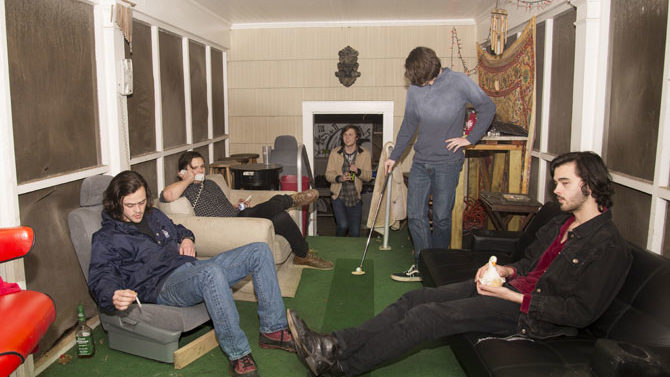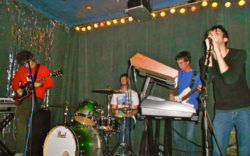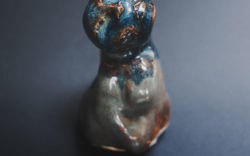It’s difficult to sense change in oneself on a day-to-day basis. By their very nature, habits and routines propel us unquestioningly forward. Often work, socialization and the pursuit of other interests become cycles that are difficult to break free from and find purpose in. But among those daily patterns, there are specific events so unique one can’t help but feel altered in some way—newly defined, even.
For third-year UGA student Jack Cherry, one such defining moment took place towards the tail end of 2014, when a childhood friend took his own life. From their days growing up together in Decatur, Cherry’s friend was an avid, ambitious athlete who showed few outward signs of depression. His heartbreaking death came as a complete shock.
“He was the happiest person ever,” Cherry says. “It still feels more like an accident. It just shook everything up that I knew.”
Cherry, who was playing in local rock outfit Uncle Dad at the time, was also recording GarageBand demos on his own under the moniker Juan de Fuca. His friend’s death inspired newfound feelings, and the music Cherry was compelled to create was vastly different from anything he had made before. “A lot of the music that I wrote about it, I think most of it is just being in the wake of something so tragic, and it’s very paralyzing,” he says.
Indeed, the difference between his 13-song Bed Room, released in June 2014, and Cavern Of, released last September—almost a year after his friend’s passing—is stark. The new album showcases a more introspective brand of lo-fi bedroom recording, running the gamut from ambient sound explosions to serene piano pieces to electro-folk ballads. In few words, it expresses love, loss and regret.
The record’s relatively short compositions, drenched in reverb, sonically and emotionally emulate the isolation of the titular cavern, which Cherry deemed the most fitting metaphor for his experience. While meditative and surprisingly mellow, Cavern Of also exhibits the kind of urgency that comes with an artist’s primary statement, as if Cherry had found new meaning for Juan de Fuca.
In many ways, one can sense Cherry’s paralysis throughout the album’s seven songs, but the cathartic process of making some sort of sense out of tragedy prompted him to reevaluate his life, both personally and musically. “It really made me reconstruct the way I was putting purpose into my life and purpose into what I’m doing with my life,” he says.
With an expanded live band that includes members of the now-dissolved Uncle Dad, Cherry is in the process of making new music, attempting to bridge the gap between multiple worlds—the bedroom and the stage; times of joy and sorrow.
“I love playing music in live settings, and I love the thrill of entertaining and giving your all as a performance. That’s really fun, but in a lot of ways it’s really separate from that album, so it’s been really weird for me to try and figure out the in-between space,” says Cherry.
Writing new material that’s not steeped in hardship has proven another tricky transition for Cherry. “That’s weird, too, moving on from such a tragic event and trying to write a song about a stressed-out college kid. I don’t feel like it’s dumb or feeble to write music that’s not about super heavy stuff, because that’s just unrealistic, but it is nonetheless weird,” he says.
With a new recording under its belt, Cherry’s newest iteration of Juan de Fuca has made steady progress in combining these worlds. “It’s going to definitely be different, but I think the point of being this one integrated project is not being able to separate ‘real music’ from ‘entertaining music’—letting it just be one thing,” he says. “Whatever that means.”
Like what you just read? Support Flagpole by making a donation today. Every dollar you give helps fund our ongoing mission to provide Athens with quality, independent journalism.










